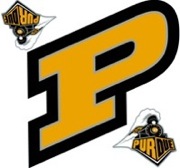Below is a summary of the abstract you submitted. Presenting author(s) is shown in bold.
If any changes need to be made, you can modify the abstract or change the authors.
You can also download a .docx version of this abstract.
If there are any problems, please email Dan at dar78@pitt.edu and he'll take care of them!
This abstract was last modified on May 5, 2017 at 11:57 a.m..

HHMI SEA-PHAGES course has been widely adapted in undergraduate education and course instructors have repeatedly reported the course to have positive influence on students’ learning experience. There is an opportunity to study the assessment component embedded in the instruction. In this study, we are exploring how instructional practices and assessment can inform each other to enrich the science education community, particularly, in this context, the community of HHMI-SEA-PHAGES. One of the desired student outcomes of the SEA-PHAGES course is to think and work like a scientist. For this, students should have a clear understanding of concepts, scientific processes and should be able to communicate using representations. Representational competence enables students to understand and explain abstract scientific concepts and phenomena (Kozma & Russel, 2005). For example, in the SEA-PHAGES course, students develop a solid understanding of genome and can represent the concepts in a pencil-paper format. Therefore, we are developing an assessment model, to help instructors assess students’ understanding of genome and their representational competence.
The typical instruction in the context of SEA-PHAGES involves multiple instructors, graders (i.e., teaching assistants), and classrooms (i.e., institutions). Therefore, we propose the idea of developing a coherent assessment framework that could be widely adapted by instructors of the SEA-PHAGES course. It will enable the community to achieve the following: 1) Explicitly map the content areas that students should be able to know, i.e. in assessment terminology, claim. In our proposed study, claims refer to students’ mastery of specific learning objectives in SEA-PHAGES course.
Sample claims may include: Students should be able to describe that… 1. Genome is the genetic material of an organism. 2. Genome consists of both DNA and RNA (RNA viruses). 3. Genome annotation is used to identify where the genes are located and what do they code for.
Based on claim 1, we have developed open-ended items that can be used to assess the claim.
2) Possessing a consistent grading process. This requires task-specific holistic rubrics for open-ended items developed from the previous step. Rubrics will allow the assessment results to be compared on the same metric. Our study includes 3 phases. In the first phase, we will collect information from instructors at multiple institutions through a survey questionnaire/interview regarding learning outcomes for students in the SEA-PHAGES course. In the second phase, we will formulate our content areas of assessment framework, where these content areas will be structured as claims. In the third phase, we will generate open-ended items from the claims and develop associated item-specific rubrics. The items and rubrics in this work can be re-used by other interested institutions and to assess the same content.

